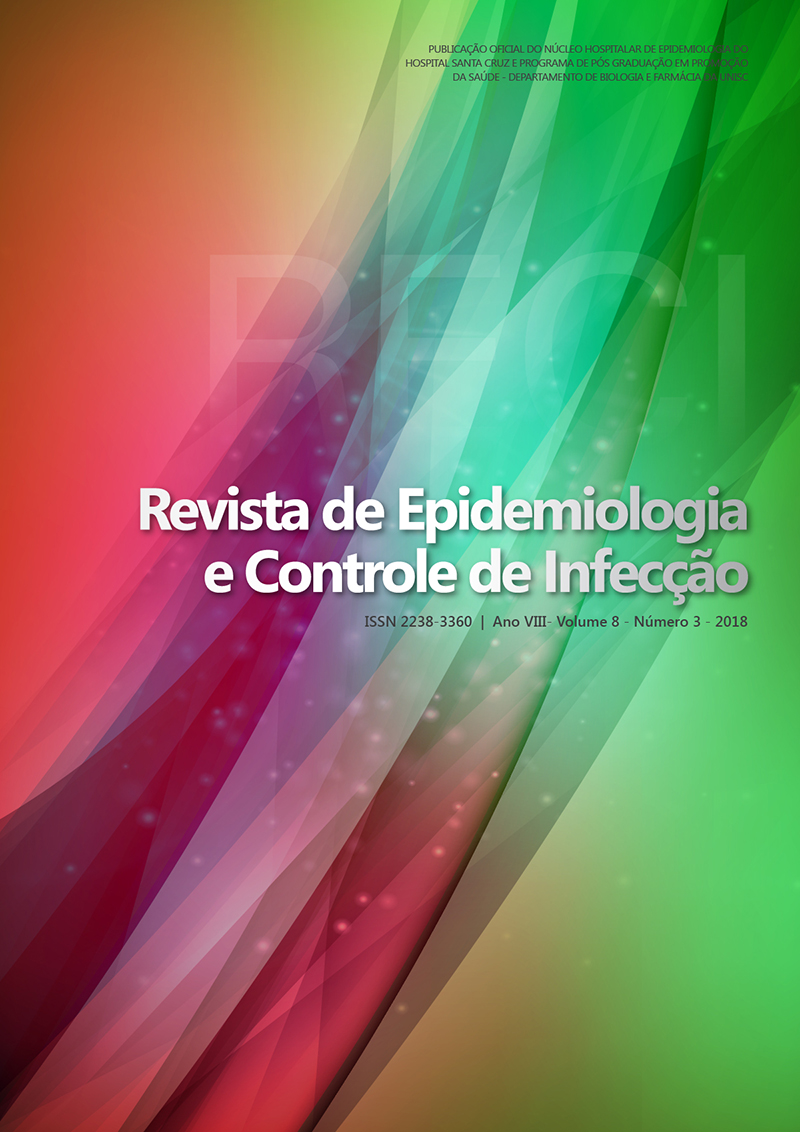Hand hygienization challenge for the implementation of the central venous cateter bundles
DOI:
https://doi.org/10.17058/reci.v8i3.11283Abstract
Background and objectives: In the prevention of adverse events associated with bloodstream infections, the hand Hygiene (HM) is one of the priority measures in actions aimed at patient safety. The objective was to verify the challenge for the implementation of bundles for the prevention of blood infection associated with the central venous catheter. Methods:Exploratory-descriptive quantitative cross-sectional study, performed at the intensive care unit of a philanthropic hospital in the interior of Minas Gerais. A multiprofessional team was directly observed by means of a data collection instrument that contained variables such as HM in medication administration, exchange of dressings and insertion of the catheter. Pearson's chi-square test was used when the expected value was> 5 and Fisher's exact test for the expected value <5.The level of significance was 5%. Results: nursing technicians had a greater number of HM opportunities on arrival of the patient's bed but most did not (p <0.05). 75.0% of physiotherapists did not do HM when they arrived at the patient's bed (p <0.05). 35.29% of the nurses performed the MH after the dressing change of the central access. It was found that not all physicians adhered to HM before (75.61%) and after (73.17%) the insertion of the catheter. Conclusion: The results indicated that even with the presence of bundle the control measures of HM were not effective for the maintenance and insertion of the catheter. Continuous and effective education is suggested to have a positive impact on reducing the rates of bloodstream infections.Downloads
Downloads
Published
How to Cite
Issue
Section
License
The author must state that the paper is original (has not been published previously), not infringing any copyright or other ownership right involving third parties. Once the paper is submitted, the Journal reserves the right to make normative changes, such as spelling and grammar, in order to maintain the language standard, but respecting the author’s style. The published papers become ownership of RECI, considering that all the opinions expressed by the authors are their responsibility. Because we are an open access journal, we allow free use of articles in educational and scientific applications provided the source is cited under the Creative Commons CC-BY license.


